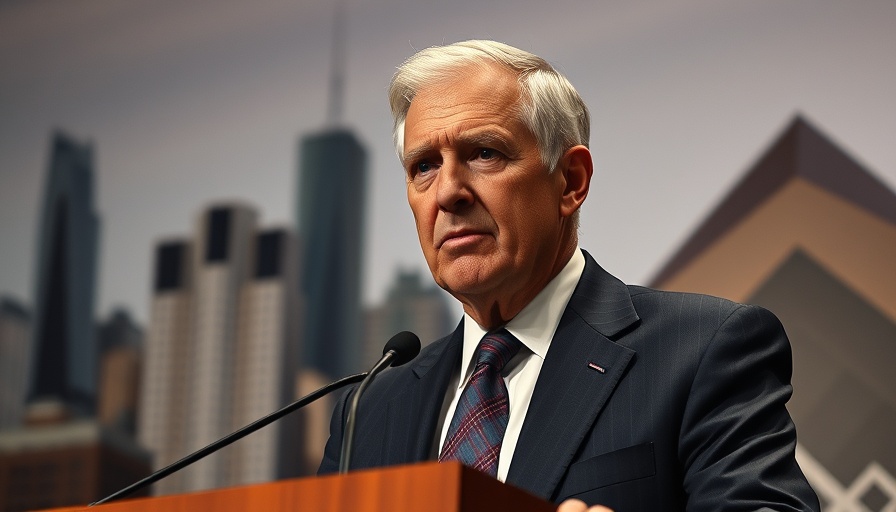
Understanding the Kremlin's Sharp Response to Germany's Arms Policy
The recent escalation of tensions between Russia and Germany comes as no surprise, given the complex geopolitical landscape surrounding the ongoing conflict in Ukraine. The Kremlin's rebuke of German Chancellor Frederick Maz's declaration that restrictions on arms supply to Ukraine have been lifted serves as a pivotal moment in Europe’s response to the war. Maria Zakharova, a spokesperson for the Russian Foreign Ministry, portrayed these remarks as mere self-promotion, suggesting that such military support would not significantly sway the course of what Russia has termed a 'special military operation.'
In 'Kremlin Slams Germany Over Ukraine Weapons Policy', the discussion delves into the implications of military support and diplomacy amid rising tensions in Europe.
This situation raises questions about the implications of Western military support and whether it indeed escalates conflict or fosters potential for peace. The Russian administration argues that the continuous supply of weapons contributes to a prolonged confrontation, effectively undermining efforts to negotiate peace. This perspective is critical to understand the Kremlin’s actions and rhetoric in response to NATO’s eastward expansion and increasing military aid to Ukraine.
Reactions Across Europe: Confusion Amid Rising Tensions
The comments made by Chancellor Maz have stirred considerable debate and confusion in European capitals. Amidst mixed reactions, it is essential to consider how these statements impact diplomatic efforts to achieve a ceasefire. As Lavrov proposed Istanbul as a venue for renewed peace talks, the response from the West is varied, with nations hesitant to navigate this complex terrain without clear directives.
The tension illustrated by Zakharova's comments exposes the fragile nature of diplomatic relations in Europe and the nuances of military strategies. Many European leaders are caught in a precarious balancing act—supporting Ukraine while ensuring they do not provoke Russia further. This dilemma reflects a broader sentiment in Europe concerning collective security and the right course of action in the face of aggression.
The Need for Peace: Exploring Dialogue Prospects
Lavrov’s invitation to resume direct peace talks indicates a flicker of hope amid the chaos. However, skepticism looms large, especially considering the divergence in strategic objectives. Historical context is crucial here: since the onset of the Ukraine conflict in 2014, multiple ceasefire agreements have failed to yield lasting peace, signaling entrenched divisions that extend beyond mere military engagements.
Proponents of resumed talks argue that any further delay could consolidate the conflict, resulting in heightened casualties and extended territorial disputes. Yet, conflicting interests make these discussions challenging. Observers argue that effective dialogue must involve more than military posturing; it requires substantive compromises and recognition of each party's security concerns.
What Lies Ahead for European Security?
Looking ahead, the significance of Ukraine’s conflict to European stability cannot be overstated. As nations grapple with energy security and economic repercussions stemming from the war, collaborative dialogues among allies become paramount. The shifts in strategy as seen in recent political rhetoric highlight a “new normal” in European security arrangements, emphasizing adaptability to an evolving geopolitical scenario.
Moreover, addressing the economic fallout—marked by rising inflation and disrupted supply chains—is critical to ensuring that nations remain resilient in the face of external pressures. Countries must navigate their dependencies, particularly regarding energy from Russia, while seeking alternative paths to strengthen their defense frameworks.
Navigating Complexities: The Bigger Picture
The unrest in Ukraine and the Kremlin's stern response points to a larger struggle encompassing global governance, energy dependencies, and military readiness. As the narrative emerges, it will be vital for stakeholders to critically assess the outcomes of their support for Ukraine against the backdrop of potential societal and economic costs. Caution should prevail as European leaders tread this delicate path of balancing support for Ukraine against the implications of an indisputably complex conflict.
This ongoing tension between the Kremlin and Western nations underlines the need for transparency, accountability, and a commitment to peace. As this scenario further unfolds, the importance of informed diplomacy cannot be neglected; echoing the necessity for regional powers to unify for broader stability amid the ongoing crisis.
 Add Row
Add Row  Add
Add 


 Add Row
Add Row  Add
Add 

Write A Comment